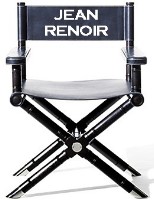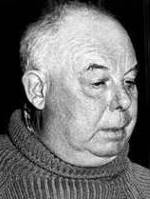 |
 |
Son of the famous impressionistic painter Pierre Auguste Renoir, Jean moved from scriptwriting to filmmaking in the 1920's. Popular success eluded Renoir as his initial movies, even critically, were dismissed as confusing, complex and unconventional. However, time has been favorable to Renoir's body of misunderstood cinema which is now academically and intellectually appreciated and revered. With an inherited ability to capture intrinsic beauty and subtle detail Renoir's films hold deep passion and social relevance drawing upon diverse issues often on very complex levels. His camera typically recorded fluid relationships using a deep-focus frame, kinetic camera movement or extended takes which would imbue the intimate thoughts of his characters. Described as a humanist and "the least arrogant of all men," Renoir left France in 1941 during the German invasion (World War II) and eventually became a naturalized US citizen. |
|
|
||
|
Suggested Reading (click cover or title for more info)
Jean Renoir |
Director - Feature filmography and Review links: The Elusive Corporal (1962), Le Déjeuner sur l'herbe (1959), The Doctor's Horrible Experiment (1959), Elena and Her Men (1956), French Cancan (1955), The Golden Coach (1953), The River (1951), The Woman on the Beach (1947), The Diary of a Chambermaid (1946), The Southerner (1945), Salute to France (1944), This Land Is Mine (1943), Swamp Water (1941), The Rules of the Game (1939), La Bête humaine (1938), La Marseillaise (1938), The Grand Illusion (1937), The Lower Depths (1936), Le Crime de Monsieur Lange (1936), Partie de campagne (1936), Toni (1935), Madame Bovary (1933), Boudu Saved from Drowning (1932), Night at the Crossroads (1932), Chotard and Company (1932), La Chienne (1931), On purge bébé (1931), Le Bled (1929), La petite marchande d'allumettes (1928) , Charleston Parade (1927) Whirlpool of Fate (1925) Nana (1926) |
|
